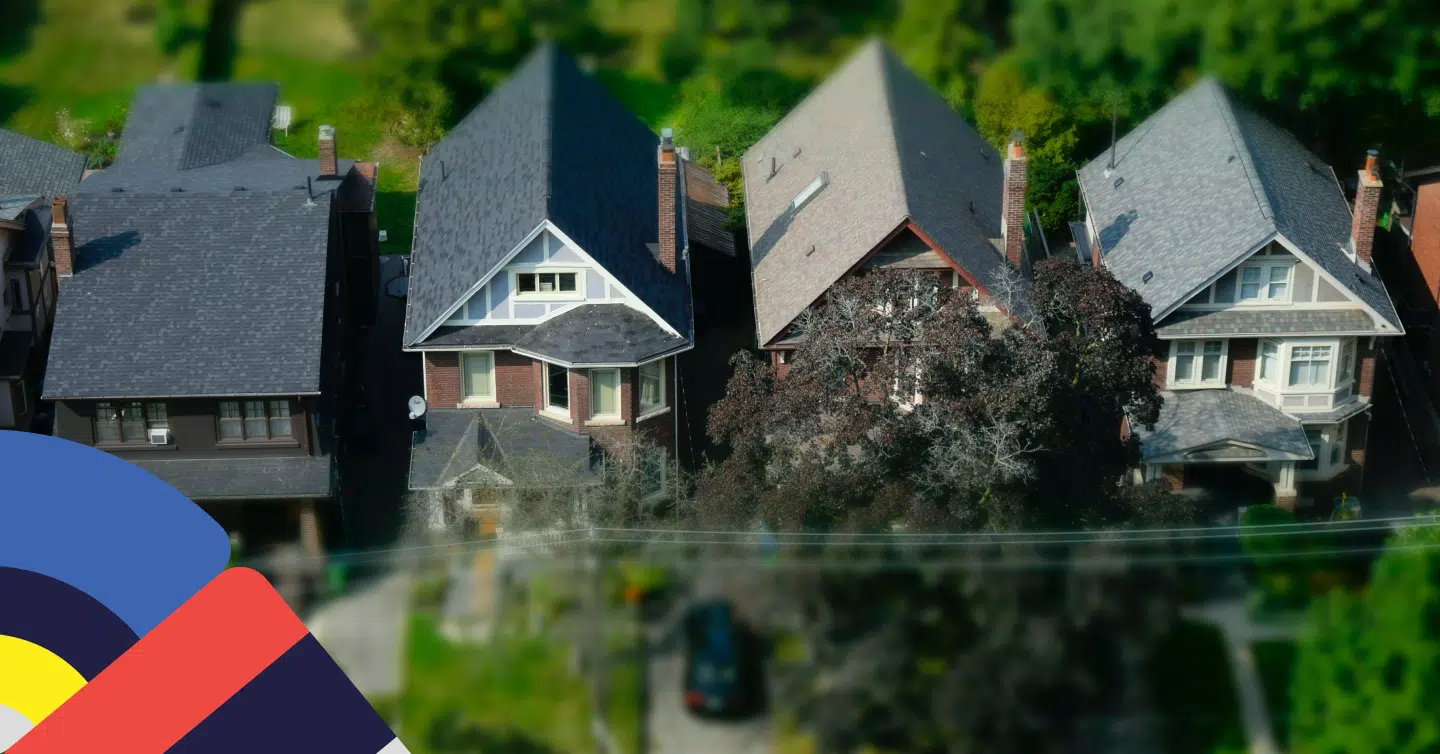Home Buying #Mortgage Basics #Real Estate
Home Buying #Mortgage Basics #Real Estate
How Long Does it Take to Save Up for a Down Payment in Each Province?

Table of contents
Saving for a down payment on a home is often cited as one of the biggest obstacles to homeownership. Homebuyers across Canada are faced with the reality of figuring out how long to save as property prices continue to increase.
As you’ll soon discover, how much you need to save varies greatly depending on where you live in Canada. This in-depth guide will offer insights into the average savings time across different provinces and what Canadians should expect along their journey toward owning a home.
Key Takeaways
- Saving duration is influenced by property prices, average salaries, and living costs.
- The average savings time can range from 3 to 16 years, depending on the province and city of your subject property.
- With strategic budgeting and planning, it’s possible to accelerate the investing and savings process and get into your dream home faster.
We’re curious…
How Much Do Canadians Typically Put Down on a Home?
The first hurdle on the road to homeownership in Canada is saving for the down payment. The minimum required depends on the property’s purchase price.
For properties priced at $500,000 or less, you’ll need at least 5% of the purchase price. If the property’s price ranges between $500,000 and $1.5 million, you’ll need 5% of the first $500,000 and 10% of any remaining amount. For properties priced at $1.5 million or more, 20% is required.
Factors Influencing Saving Duration
Saving can be difficult, especially when so many factors influence how long we can keep that money saved. One major factor is the amount of income we earn. It’s no secret that those who earn more money have an easier time saving it as long as their expenses are not increasing alongside their incomes.
Another factor is the cost of living in your particular area. Living expenses and property prices can vary greatly depending on where we choose or need to live, impacting how much we can save and for how long.
Provincial Property Prices
Property prices across Canadian provinces vary significantly, considerably impacting the time it takes for you to save. For instance, provinces like B.C. and Ontario, known for their soaring property prices, require a longer saving period compared to provinces with more affordable housing markets.
Average Salaries
Your income plays a fundamental role in determining how long it will take to save for a down payment. Unfortunately, while property prices have steeply risen over the years, average salaries have largely remained stagnant (we’re using 2022 incomes from the most recent StatsCan census for our calculations). This discrepancy has resulted in an extended savings period for potential homeowners.
Living Costs
The cost of living also significantly influences the saving duration. The higher cost of living in areas like Toronto means less disposable income is available to set aside for a down payment, further extending the savings period required to afford a home.
Don’t scrap your buying plans
Download our full homebuyer’s guide to navigating high rates!
How Much to Save for a Down Payment in Each Canadian Province
The average savings time required to afford a home using the minimum down payment in Canada stands at almost 8 years. However, this figure fluctuates greatly across provinces and even cities.
Here’s a snapshot of how long it would take to save the minimum down payment required for a home in each province and territory, assuming you can save 10% of your gross income each year to put toward a down payment.
Ontario
Average house price: $834,123
Minimum down payment: $58,700
Salary average: $58,700
Time to save for a down payment in Ontario: 9.9 years
Major city: Toronto
Average house price in Toronto: $1,117,600
Minimum down payment: $86,760
Time to save for a down payment in Toronto: 14.7 years
You currently need to save for 9.9 years in Ontario and 14.7 years in Toronto. To make a comparison, it took roughly 5 years to save up for the minimum down payment on a home in Toronto 10 years ago.
While home prices in the GTA continue to spiral out of control, some smaller communities in Ontario still have affordable housing options that are less than the Ontario average if you are ready to leave the city for greener pastures. If your heart is set on the city, your best option may be to pool your resources and purchase a home with friends.
Quebec
Average house price in Quebec: $541,701
Minimum down payment: $29,170.10
Salary average: $54,700
Time to save for a down payment in Quebec: 5.3 years
Major city: Montreal
Average house price in Montreal: $580,000
Minimum down payment: $33,000
Time to save for a down payment in Montreal: 6 years
You currently need to save for 5.3 years to afford a home in Quebec and 6 years in Montreal. To compare this to 10 years ago, it took just 2.5 years to save for a home in Montreal.
British Columbia
Average house price: $984,959
Minimum down payment: $73,495.90
Salary average: $58,300
Time to save for a down payment in BC: 12.6 years
Major city: Vancouver
Average house price in Vancouver: $1,172,100
Minimum down payment: $92,210
Time to save for a down payment in Vancouver: 15.8 years
You currently need to save for 12.6 years to afford the down payment on an average-priced home in B.C. In Vancouver, that jumps to 15.8 years. Just 10 years ago, it took an average of 7.9 years to afford the minimum down payment on a home in Vancouver.
Like Toronto, if Vancouver is the place you call home, consider buying a home with friends and combining your down payments.
Alberta
Average house price: $496,348
Minimum down payment: $24,817.40
Salary average: $61,500
Time to save for a down payment in Alberta: 4 years
Major city: Calgary
Average house price in Calgary: $694,411
Minimum down payment: $44,441.10
Time to save for a down payment in Calgary: 7.2 years
You currently need to save for 4 years in Alberta and 7.2 years in Calgary. In 10 years, this savings timeline has doubled as you only needed to save for 3.5 years to afford the minimum down payment in Calgary.
Saskatchewan
Average house price: $338,400
Minimum down payment: $16,920
Salary average: $55,700
Time to save for a down payment in Saskatchewan: 3 years
Major city: Saskatoon
Average house price in Saskatoon: $398,800
Minimum down payment: $19,940
Time to save for a down payment in Saskatoon: 3.6 years
It will take 3 years to save up in Saskatchewan, while in Saskatoon, it will take you slightly longer, at 3.6 years. In the last year, home prices in Saskatchewan have remained relatively stable, so if you’re looking for your forever home and relocating sounds like a fun adventure, Saskatchewan could be a great place to call home.
Manitoba
Average house price: $374,552
Minimum down payment: $18,727.60
Salary average: $50,700
Time to save for a down payment in Manitoba: 3.7 years
Major city: Winnipeg
Average house price in Winnipeg: $360,500
Minimum down payment: $18,025
Time to save for a down payment in Winnipeg: 3.6 years
In Manitoba, you’ll need to save for 3.7 years on average, while in Winnipeg, you can own a home just a little sooner, needing to save for 3.6 years. Home prices in Manitoba have remained relatively stable in the past year, so this province could be an excellent option for buyers looking to become homeowners who are up for a new adventure.
New Brunswick
Average house price: $326,500
Minimum down payment: $16,325
Salary average: $48,200
Time to save for a down payment in New Brunswick: 3.9 years
Major city: Saint John
Average house price in Saint John: $346,700
Minimum down payment: $147,335
Time to save for a down payment in Saint John: 3.6 years
In New Brunswick, it will take 3.9 years to save. In Saint John, you can own a home a little sooner, needing to save for 3.6 years. Home prices in the area have also remained consistent over the years, making this province one of the most affordable in Canada.
Prince Edward Island
Average house price: $3374,200
Minimum down payment: $18,710
Salary average: $48,400
Time to save for a down payment in PEI: 3.9 years
Major city: Charlottetown
Average house price in Charlottetown: $452,442
Minimum down payment: $22,622.10
Time to save for a down payment in Charlottetown: 4.7 years
It will take 3.9 years to save in PEI and even longer in Charlottetown, where you will need to save for 4.7 years before being able to purchase a home.
Nova Scotia
Average house price: $402,400
Minimum down payment: $20,120
Salary average: $48,800
Time to save for a down payment in Nova Scotia: 4.1 years
Major city: Halifax
Average house price in Halifax: $527,700
Minimum down payment: $27,770
Time to save for a down payment in Halifax: 5.7 years
In Nova Scotia, you will need to save for 4.1 years or 5.7 years if you want to live in Halifax. Property market prices in this province are also on the rise, so it may take even longer to save up if you are looking to purchase here.
Newfoundland and Labrador
Average house price: $305,700
Minimum down payment: $15,285
Salary average: $51,100
Time to save for a down payment in N&L: 3 years
Major city: St. John’s
Average house price in St. John’s: $364,100
Minimum down payment: $18,205
Time to save for a down payment in St. John’s: 3.7 years
NL has one of the shortest savings timelines out of all the provinces, requiring just 3 years. If you want to live in St. John’s, you’ll need to save a little longer, as it will take 3.7 years to save enough for the average home in the city.
Territories: Yukon, Northwest Territories, and Nunavut
Average house price: $504,314
Minimum down payment: $25,431.40
Salary average: $90,400
Time to save for a down payment in NW Territories: 4.2 years
Major city: Whitehorse
Average house price in Whitehorse: $628,700
Minimum down payment: $37,870
Time to save for a down payment in Whitehorse: 4.2 years
Surprisingly, the territories are not as affordable as many think. It will take you 2.8 years to save enough for the average home in the Yukon, Northwest Territories, or Nunavut and 4.2 years if you plan to live in Whitehorse. With astronomically high food prices in the north (about 4x more than the rest of Canada), saving up could take longer.
How to Save for a Down Payment in Canada
While these figures might seem out of reach, don’t lose hope just yet. There are several strategies you can use to speed up your saving process.
Budgeting
Having a clear budget can help you track your income and expenses, making it easier to see where your money is going and set aside money for your down payment. Once you have worked out a budget that you can stick with, automate your savings by transferring a set amount each month to a savings account like the First Home Savings Account (FHSA) or Tax-Free Savings Account (TFSA).
Reducing Unnecessary Expenses
Cutting back on non-essential costs can free up additional funds for your savings. Budgeting can be a great way to help you identify areas where you spend more than you think. When you look closer at where your money is going, you might be surprised at how much you spend on things you don’t need.
You can increase your savings by making a few small changes to your spending habits. Once you have a budget that sets a budget for discretionary spending, you can put the money saved into your down payment fund.
Increasing your Income
Consider boosting your income, such as working part-time or freelancing. If you have a hobby that can easily be monetized, you can turn it into a side hustle to generate additional income that you can put directly toward savings. Consider offering lessons if you have a skill you could teach others, or if crafting is your hobby, you can sell your handmade goods.
Investing
Wisely investing your money can generate returns that contribute to your down payment and help you reach your goal faster. Rather than simply storing your money in a savings account with a low interest rate, consider exploring different investment options that align with your financial goals.
For even the most novice investor, various investment solutions and risk tolerance levels are available. Consider speaking with a financial advisor or using an investment platform to manage your portfolio. With a solid investment strategy in place, you’ll not only be able to save for a down payment quicker but also have the potential to grow your wealth in the long run.
Frequently Asked Questions
How much do I need to save for a down payment in Toronto?
In Toronto, you will need to save at least $86,760 to afford the average-priced home. This equates to over 14 years of savings on an average salary. In 10 years, the average time it takes to save has increased by 3x. If the city continues on this trajectory in 10 years, it may take 42 years to save for a down payment if average wages grow simultaneously.
How much do I need to save for a down payment in Montreal?
In Montreal, you will need to save at least $33,000 to afford the average-priced home in the city. This equates to 6 years of savings on an average salary. In 10 years, the average time to save has increased by 2.4x, meaning in 10 years, it may take you over 14 years to save for a down payment if average wages grow at the same pace.
How much do I need to save for a down payment in Vancouver?
In Vancouver, you will need to save at least $92,210 to afford the average-priced home in the city. This equates to almost 16 years of savings on an average salary. In 10 years, the average time it takes to save has increased by 2x. If prices in the city continue to grow at this pace, it may take you 32 years to save for a down payment in 10 years if average wages increase at the same pace.
How much do I need to save for a down payment in Calgary?
In Calgary, you will need to have at least $44,441.10 saved for a down payment to afford the average-priced home. This means it will take 7 years of savings on the average salary. In 10 years, the average time it takes to save has increased by 2x. In 10 years, if prices in the city continue to grow at the same pace, it may take you over 14 years to save for a comparable down payment.
Final Thoughts
Understanding how long it takes to save for a down payment is the first step in the homeownership journey. Knowing the minimum amount you will need and the potential savings timeline will help you devise a strategic savings plan tailored to your budget and accelerate your path to purchasing your dream home.
Looking at these numbers have you feeling down? Why not relocate to a more affordable province if you can’t afford to buy in yours? Contact nesto’s interprovincial mortgage experts and see how they can help you reduce your purchasing timeline and buy a home sooner.
Ready to get started?
In just a few clicks, you can see our current rates. Then apply for your mortgage online in minutes!















